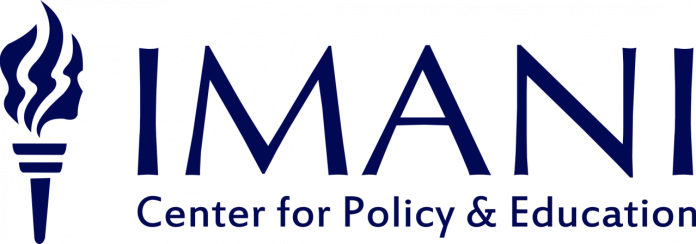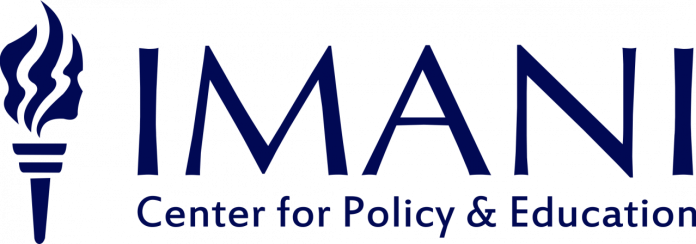
Policy think tank IMANI Africa is raising serious concerns about the government’s proposed sports fund, questioning whether it will genuinely benefit athletes or simply become another mismanaged cash pot in Ghana’s long history of poorly administered special-purpose funds.
Sports and Recreation Minister Kofi Adams has confirmed that cabinet has approved the national sports fund to address financial challenges faced by various sporting disciplines. However, the minister has dismissed claims about introducing new taxes, clarifying that the fund will rely on levies from existing revenue sources rather than fresh taxation.
Despite these clarifications, IMANI Africa remains unconvinced. In its latest Criticality Analysis titled “Ghana’s Sporting Triumphs and the Debate on a Proposed Sports Fund,” the think tank questions whether this initiative will avoid the pitfalls that have plagued similar ventures.
The organization cites Ghana’s checkered history with special-purpose funds such as the National Health Insurance Scheme, GETFund, Minerals Income Investment Fund, and the Cash Waterfall Mechanism. Despite noble intentions, these funds have often fallen short of expectations through mismanagement and lack of transparency.
“Ghana’s history with special-purpose funds shows that levies and earmarked funds often fail to deliver their intended outcomes,” the analysis indicated. IMANI pointed to recent examples where the government had to draw from the tax refund account to cover education deficits and raise the Energy Sector Recovery Levy from GHS0.20 to GHS1 to keep the lights on. “These precedents cast doubt on whether a Sports Fund would fare any better.”
It’s a pattern that Ghanaians have seen repeatedly. Funds established with fanfare and promises of transformation eventually become synonymous with opacity, inefficiency, and diverted resources. IMANI’s skepticism reflects broader public wariness about yet another special-purpose fund entering an already crowded landscape of poorly managed levy-financed schemes.
The think tank also raised concerns about the role of the National Sports Authority, the state body tasked with overseeing sports administration. IMANI warns that without a clearly defined mandate, the NSA could be sidelined entirely, turning the fund into a bureaucratic free-for-all where accountability becomes impossible to enforce.
Minister Adams has explained that the sports fund will support infrastructure and key sport areas including football and athletics, noting the country’s inadequate investment in facilities like athletic tracks. But IMANI’s analysis suggests that good intentions and identified needs don’t guarantee effective implementation, particularly when governance structures remain unclear.
The debate highlights tension between recognizing Ghana’s genuine sports funding challenges and questioning whether the proposed solution will actually work. Nobody disputes that Ghanaian athletes need better support, infrastructure requires investment, and sports development deserves sustainable financing. The question is whether this particular mechanism will deliver or simply create another avenue for mismanagement.
From health to education to energy, Ghana’s experience with special-purpose funds often starts with promise but ends with public disillusionment. Well-designed funds become cash cows for political patronage, emergency financing for unrelated government expenditure, or simply disappear into administrative overhead without reaching intended beneficiaries.
IMANI’s warning carries particular weight given the organization’s track record of scrutinizing government financial management. The think tank has previously raised red flags about various public sector initiatives, often proving prescient when problems eventually surface.
Without transparency, accountability, and disciplined governance, the proposed Sports Fund could quickly morph from celebration of sporting ambition into another symbol of fiscal mismanagement. IMANI is essentially asking the government to prove this time will be different before Ghanaians invest hope and resources in yet another fund.
The minister’s assurances about not introducing new taxes may address one concern, but they don’t resolve fundamental questions about governance, oversight, and protection against political interference. How will fund managers be appointed? What mechanisms will prevent diversion of resources? How will performance be measured and reported?
These aren’t rhetorical questions. They’re practical matters that determine whether special-purpose funds succeed or fail. Ghana has established numerous such funds over decades, and the pattern of underperformance suggests systemic problems that require more than good intentions to overcome.
For now, IMANI’s analysis serves as a reminder that enthusiasm for sports development shouldn’t blind policymakers or the public to harsh lessons from previous attempts at levy-financed special-purpose funds. If the Sports Fund proceeds, it will need exceptionally robust governance to avoid becoming another entry in Ghana’s catalogue of well-intentioned but poorly executed fiscal initiatives.
